China Holds Key Roundtable with American Companies
In a significant move aimed at reinforcing economic ties, China’s Ministry of Commerce (MOFCOM) held a roundtable meeting with U.S. companies. This event marked an important step in maintaining open communication between Chinese authorities and American businesses operating in the country.
The meeting was attended by key Chinese officials and representatives of major U.S. firms. It underlines China’s ongoing efforts to reassure foreign investors about its commitment to a business-friendly environment despite rising global uncertainties.
China’s Vice Commerce Minister, Ling Ji, told top American companies like Tesla and GE Healthcare that the country will always ensure the safety and support of foreign businesses operating there, including those from the U.S.
Speaking at a roundtable with over 20 U.S.-funded firms, Ling emphasized that China has always been — and will continue to be — a reliable, safe, and attractive place for foreign investment.
China Reaffirms Commitment to Foreign Investment
During the discussions, Chinese authorities reiterated their dedication to welcoming foreign investment. The government emphasized that its long-standing policy to support and utilize foreign capital remains unchanged.
This message is part of China’s broader economic strategy to remain an open and attractive destination for international business. The Vice Minister of Commerce also assured U.S. companies that China will continue to safeguard the interests of foreign enterprises operating within its borders.
Economic Stimulus May Arrive Sooner Than Expected
In light of increasing economic pressures, especially from trade-related tariffs, China is now considering speeding up the rollout of economic stimulus measures. According to Bloomberg News, the government is exploring ways to front load its economic support to offset the impact of new tariffs being proposed by U.S. President Donald Trump.
These stimulus discussions reflect Beijing’s concern over both external and internal economic challenges. Faster implementation of fiscal support could help stabilize key industries and restore investor confidence.
Chinese Markets in Turmoil: Hang Seng Sees Historic Fall
Despite these efforts, Chinese stock markets have reacted sharply to the current economic environment. On April 6, the Hong Kong stock market witnessed a massive sell-off. The Hang Seng Index plunged by 11%, marking its worst single-day decline since the 2008 global financial crisis.
The Hang Seng Tech Index was hit even harder, dropping more than 15% as leading Chinese technology companies faced intense investor pressure. Notable declines included Li Auto and Xiaomi, both down over 15%, while Alibaba saw a fall of over 16%.
China’s Sovereign Fund Boosts ETF Investments to Support Market Stability
China’s sovereign wealth fund, Central Huijin, has increased its investment in exchange-traded open-ended index funds (ETFs), according to an official statement. The fund also said it plans to continue increasing ETF holdings to help maintain stability in the capital markets.
China’s Social Security Fund Will Keep Investing in A-Share Stocks
China’s Social Security Fund has said it will continue to invest in A-shares. These are shares of Chinese companies that are listed on stock markets in mainland China. This move shows that the fund is still supporting the local stock market and plans to stay invested in it.
China’s state-owned company, Chengtong, will use 100 billion yuan from its stock buyback funds to buy more shares in publicly listed companies.
Futures Market Mirrors Panic
The panic wasn’t limited to Hong Kong. In mainland China, the futures market also suffered significant losses. The CSI 300 Index futures, representing top Chinese stocks, dropped by more than 7%. The SSE 50 Index futures, tracking China’s 50 largest blue-chip companies, fell nearly 6%.
Worse still, mid- and small-cap indices experienced even steeper declines. The CSI 500 and CSI 1000 futures dropped over 8% and 9%, respectively, highlighting widespread concern across all segments of the market.
Global Trade Tensions Fuel Investor Fears
This sharp downturn in Chinese markets comes at a time of increasing trade tensions, particularly between China and the U.S. Speculation around the return of Trump-era tariffs has rattled investors and businesses alike. The fear of a renewed trade war is prompting both companies and governments to rethink their strategies.
China’s response so far includes open dialogues with U.S. firms, policy reassurances, and potential early economic support—all part of a broader effort to calm markets and maintain foreign investor trust.
Recession Risk in the U.S. Rises Sharply, Say Major Banks
Goldman Sachs has increased the chances of a U.S. recession within the next 12 months to 45%, up from its earlier estimate of 35%. This change comes as concerns grow over a possible trade war, especially after President Donald Trump announced major tariffs. Goldman says that because of tighter financial conditions and growing uncertainty in government policies, many businesses might cut back on their investments more than expected.
Other big banks are also sounding the alarm. J.P. Morgan now believes there is a 60% chance of a recession in the U.S. and around the world within the next year. Just last month, Goldman had already raised its estimate from 20% to 35%, saying the economy was showing signs of weakness compared to previous years.
What Lies Ahead?
While China’s proactive approach sends a positive signal to global investors, much will depend on how the global trade situation evolves. If tariffs are indeed imposed or escalated, China may need to unveil more aggressive economic relief measures.
For now, the government’s emphasis on foreign investment, protection of overseas businesses, and economic openness is a critical message aimed at both stabilizing its economy and preserving its role in global trade.

BBW News Desk is the editorial team of BigBreakingWire, a digital newsroom focused on global finance, markets, geopolitics, trade policy, and macroeconomic developments.
Our editors monitor government decisions, central bank actions, international trade movements, corporate activity, and economic indicators to deliver fast, fact-based reporting for investors, professionals, and informed readers.
The BBW News Desk operates under the editorial standards of BigBreakingWire, prioritizing accuracy, verified information, and timely updates on major global developments.










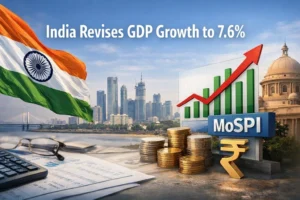

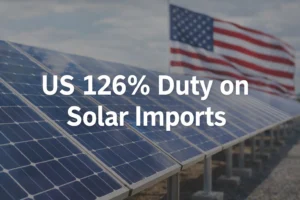



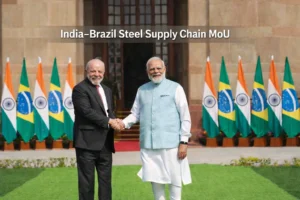




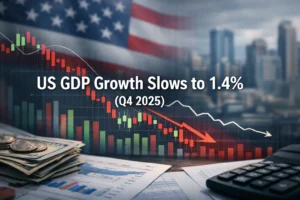




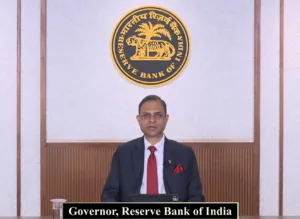


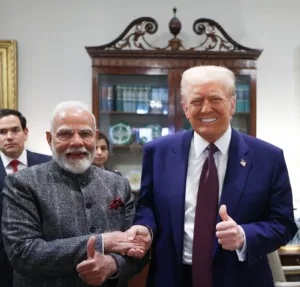


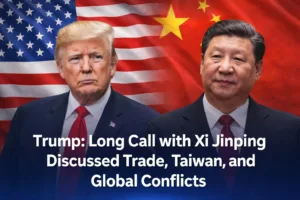


One Comment